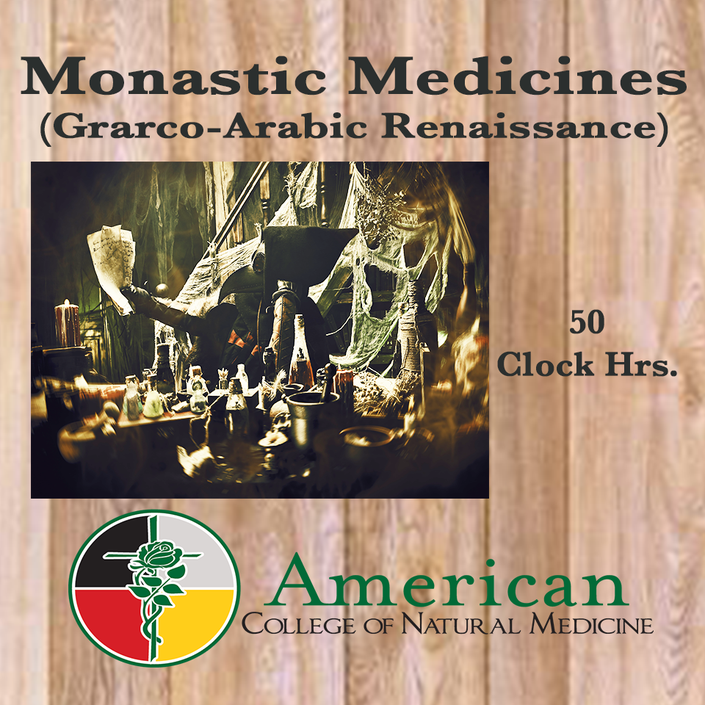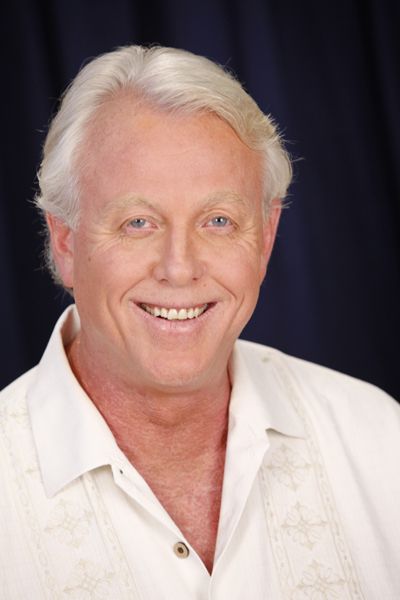
Monastic Renaissance Medicine (DSTIM)
Graeco-Arabic Renaissance Nature Cure

The Middle Ages spans a period of over a thousand years from
the 5th to the 15th centuries following the collapse of the Roman Empire.
During the Middle Ages, the monasteries were the primary source of formal
medical care and education by the monks maintaining medical facilities such as
hospitals, infirmaries and herb gardens. In the early to late Middle Ages, the
dire prevalence of contagious illness and disease greatly influenced the
practices and development of formal medical care. As a result of poor living
conditions, contagion, malnutrition, food poisoning, and the limitations of
medieval medicine, disease was a constant peril in Christendom and the Levant
and often controlled people’s daily lives. In response to illness in general
and to large-scale epidemics of dreaded diseases such as the black plague,
leprosy, and dysentery, individuals, the Church, and societies searched for
new, more effective means of medical care. In this context, medicine expanded
into a large and important vocations and occupations, encompassing a variety of
practices which the Church formalized into a system called monastic medicine.
Parallel to this period, other forms of medicine included barber-surgery,
magical medicine, folk medicine, midwifery, and herbalism.
Course Curriculum
-
StartLesson 0: Monastic Medicine, Intangible Cultural Heritage
-
StartLesson 1: Short History of Graeco-Arabic Monastic Medicine
-
StartLesson 1b: Classical Views of Disease of Middle Ages
-
StartLesson 2: Basic Tenets of Graeco-Arabic Medicine
-
StartLesson 3: Ancient and Medieval Anatomy
-
StartLesson 4: The Brain
-
StartLesson 4a: A History of the Brain from Shamanism to Einstein
-
StartLesson 5: The Eye
-
StartLesson 6: The Heart
-
StartLesson 7: The Lungs
-
StartLesson 8: The Liver
-
StartLesson 9: The Muscles
-
StartLesson 10: Medieval Gynocology
-
StartLesson 10b: Video: Helen King - Representing the Womb in Three Dimensions
-
StartLesson 11: The Nervous System
-
StartLesson 12: The Skeleton
-
StartLesson 13: ARTERIES AND VEINS
-
StartLesson 14: The Faculties
-
StartLesson 14b: The Paris School
-
StartLesson 15: The Temperaments
-
StartLesson 16: The Distempers
-
StartLesson 17: Humoral Diseases
-
StartLesson 17b: The Germ theory of Disease
-
StartLesson 18: Monastic Medical Astrology
-
StartLesson 19: Herbalism
-
StartLesson 20: Graeco vs. Arabic Humoral Therapy
-
StartLesson 21: The Balance of Passions
-
StartLesson 22: Contagionism
Your Instructor

Prof. Anthony B. James MSc.(Clinical Herbology), DNM(C), Idaho Registered ND(T), Christian Science Practitioner, MD(AM), DOM(Acu), DPHC(h.c.), Ph.D. (IM), Ph.D. (Hospitaller Medicine h.c.), DMM, RAAP, Doctor of Thai Traditional Medicine (UTTS-Lifetime), MSGR./CHEV., Ordained Native Monsignor, Native Bishop, Eastern Orthodox Catholic Church of the East in Brazil, Dean, Director of Education and Traditional Medicine AAPNA.Advisory Board Member
Professor- Teacher, Physician, Registered Ayurveda Doctor (Vidya), Chriistian Minister, Healer, Therapist... Florida, USA
Anthony B. James was one of the first Westerners ever recognized in Thailand as an authentic Thai Traditional Medicine teacher and Ajahn or professor; where his work is known and honored throughout the country by the Royal Thai Gov't Ministries of Thai Traditional Medicine, Thai Department of Commerce and Tourism Authority of Thailand (TOT- Friend of Thailand Awardee recipient), Wat Po Association of Thai Traditional Medical Schools registered AJAHN (Ajahn)/ Professor of Thai Traditional Medicine. He is a teacher of Thai Ayurveda, Classical Indian Ayurveda, Yoga, and Vedic astrology (Thai Korosot Astrology), who shows how Yoga and Vedic systems of knowledge interface for optimizing our human potential.
https://worldmassagefestival.com/?page_id=54
World Massage Therapy Hall of Fame • July 18, 2023 •
Lifetime Achievement Award •
Massage Therapy World Championships,
Harrah’s Cherokee Casino Resort • Cherokee, NC, USA
A.A.P.N.A. Advisory Board Member and Registered Ayurvedic Doctor R.A.D. (A.A.P.N.A.) practicing Ayurveda Medicine and therapy for over 41 years. His books include "Ayurveda of Thailand- The A.A.P.N.A. Veda Vyasa Award Recipient for 2017", "Ayurveda and Thai Yoga, Religious Therapeutics Theory and Practice," as several Telly Award-winning Video Documentaries on Thai Traditional Medicine and Thai Yoga Therapy. He is currently the director of the N.A.I.C.: American College of Natural Medicine, A.C.N.M.School of Ayurveda Medicine and Thai Yoga Center, Staff and Faculty for Oriental Medicine Doctoral program of the PanAmerican School of Natural Medicine- Nevis West Indies, and on the editorial board for the magazine "International Journal of Complimentary and Alternative Medicine."
Massage Therapy Hall of Fame Lifetime Achievement Awardee
Dr. James has a forty-year+ background in natural healing, including the systems of Native American Medicine, Thai Ayurveda, Classical Indian Ayurveda, Chinese Medicine, Western Herbalism, and Vedic Astrology. He has an M.D.(AM) degree, board-certified naturopathic degree [Idaho Registered ND(T),], two doctoral degrees in natural medicine, and an O.M.D. (Acupuncture), and a doctorate/Ph.D. in Indigenous Medicine and Monastic Medicine. Dr. James also holds a Masters's in Clinical Herbology and has taught herbal medicine for several years. He is the dean of the A.C.N.M.: American College of Natural Medicine, the School of Ayurveda Medicine, and the Thai Yoga Center schools and programs. Dr. James is the author of numerous books, articles, and hundreds of educational videos focused on Ayurveda and related topics. For many years, he has presented seminars and at national and international medical conferences, including A.A.P.N.A.
In addition to his interest and research into his family's Native American Religious and medical heritage, Dr. James is an ordained priest and Monsignor of the Sacred Medical Order of The Church of Hope (S.M.O.CH./ S.M.O.K.H.). The Church of Hope is a unique and sacred ministry of monastic medicine, sanctified healing, ecclesiastical medicine, holistic medicine, and indigenous medicines as part of religious doctrine, where he is working to integrate Ayurveda and Complimentary Medicine into the Monastic Medical Tradition of the church.
In September 2016, Ajahn James published a comprehensive textbook titled "Ayurveda of Thailand: Indigenous Traditional Thai Medicine and Yoga Therapy, "Meta Journal Press. This new book details Ayurveda's authentic history and genuine practices, philosophy, and religious therapeutics in Thailand.
November 30th. 2009, Ajahn, Dr. Anthony James receives LifeTime Membership Recognition with the Union of Thai Traditional Medicine Society (U.T.T.S.). The award was presented by Mr. Aram Amaradit (Dr. Amratisha), Member of Parliament of Surin Province, Chairman of the Committee on Public Health, President, and founder: Of the Union of Thai Traditional Medicine Society, Ministry on Public Health, Thailand. U.T.T.S. Life Time recognition (Thai Traditional Medicine/ Thai Traditional Massage) credentials #520121896. The credentials were issued in the offices of The Union of Thai Traditional Medicine Society, Ministry of Public Health, Nonthaburi, Thailand.
Ajahn, Dr. James studied under the former Grandmaster Ajahn Sintorn Chaichagun at the Shivagakomarpaj Traditional Medicine Hospital in Chiang Mai, Thailand, from 1988 to 1995. He maintained a working relationship with his mentor in the Northern style, Grand Master Sintorn, and "The Old Medicine Hospital" until Grand Master Sintorn's passing in 2005.
Ajahn, Dr. James was the original founder and chief Teacher for the International Thai Therapists Association 1992-2012, to fairly represent the traditional Thai Yoga and Thai Massage practiced primarily in the US. Dr. James specializes in Native American Medicine, Thai medical theory, Asian history, Ayurveda, and Theravada Buddhism. In 2006, he was granted Ajahn/ professor and Master Thai Traditional Medicine: Thai Yoga/ Thai Massage Teacher status through the Anantasuk system (Hua Hin Thailand), recognized by the Wat Po Association. The Wangklaikangwon Industrial College Dean and Educational Director, Dr. Surasak Srinoi, presented the award.


